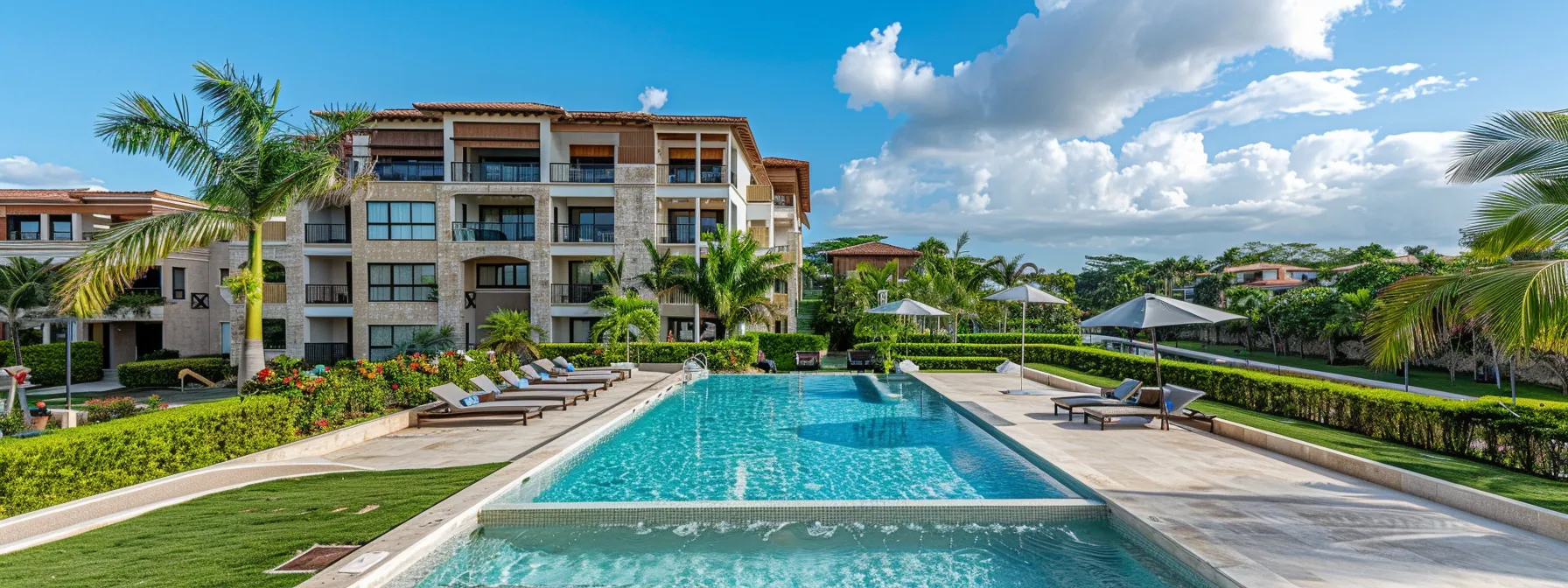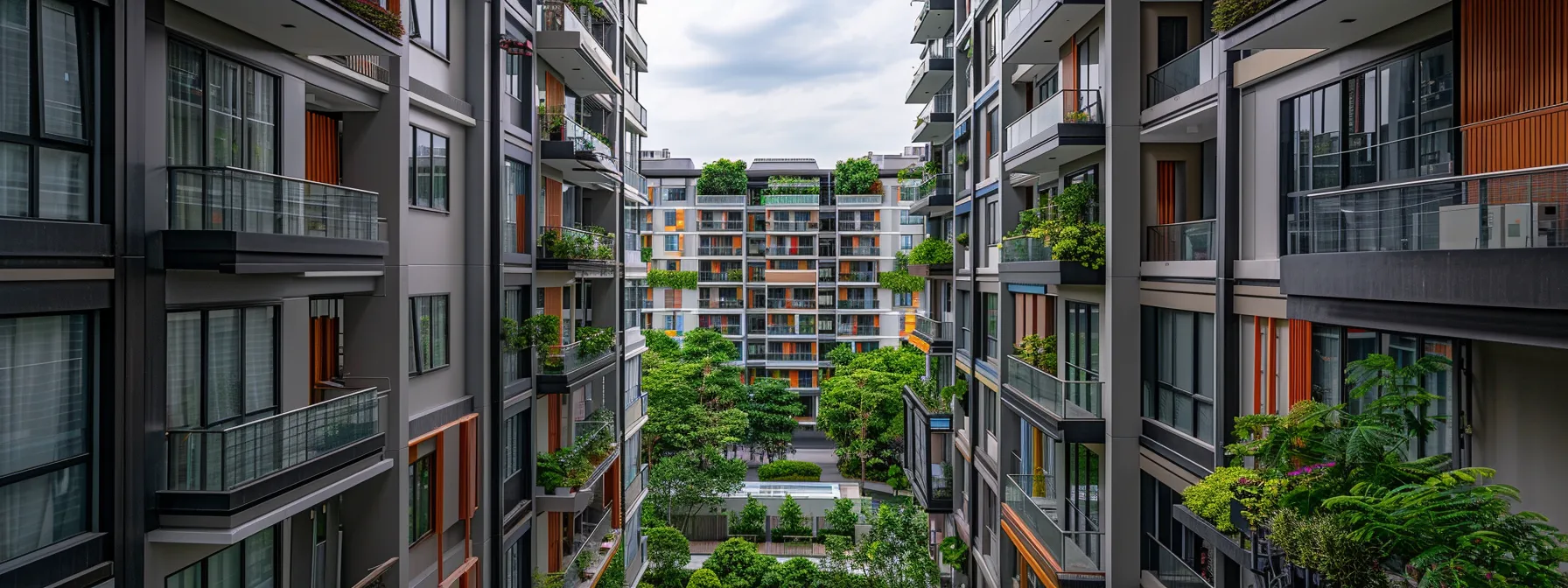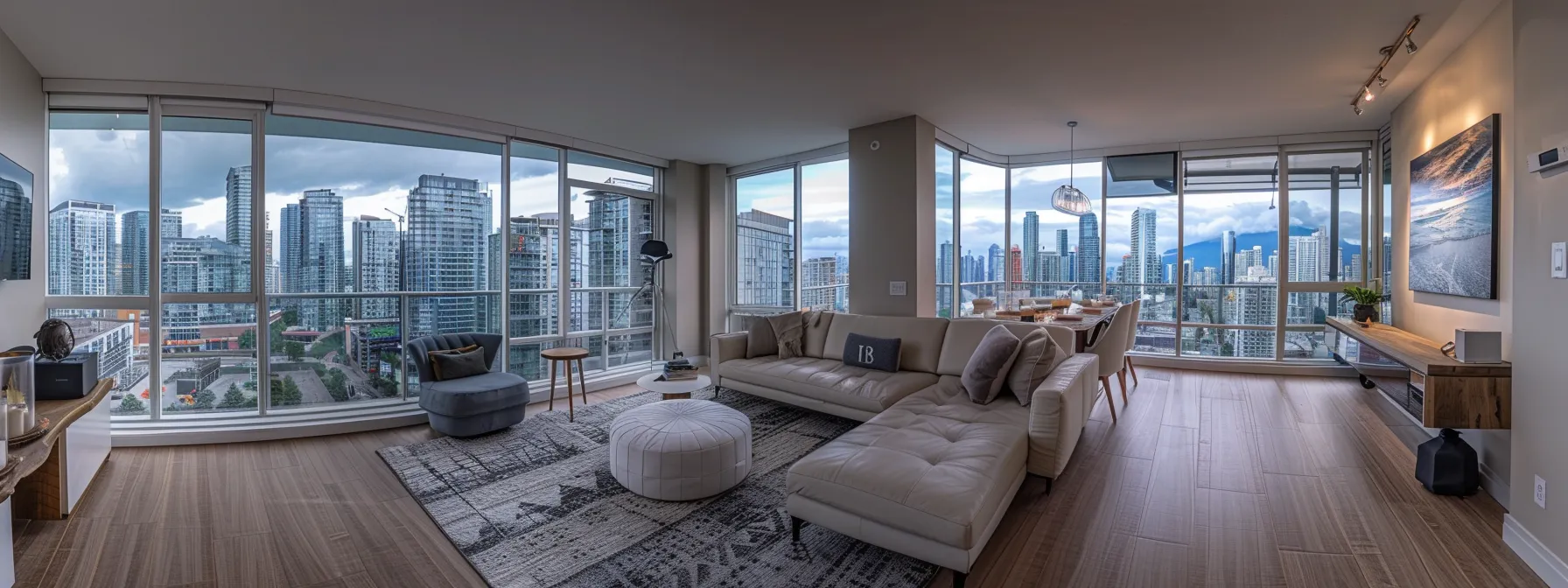Are you considering buying a condo in Singapore but unsure whether to choose a private or executive option? This guide explores the key differences between private condos and executive condos, focusing on eligibility, ownership restrictions, and financial considerations. You’ll learn about payment options, property regulations, and how each type caters to different needs, including those of the “sandwich class.” By the end, you’ll have the information needed to make an informed decision on which condo type best suits your situation and budget.
Understanding Private Condominiums

Private condominiums in Singapore offer unique advantages for homeowners. This section explores their definition, eligibility requirements, ownership rights, amenities, and resale value. Understanding these aspects helps you compare private condos with executive condos, considering factors like affordability, capital gain potential, and long-term investment value in Singapore‘s property market.
Definition and Characteristics of Private Condos
Private condominiums in Singapore are residential properties with full private ownership, offering you exclusive amenities and facilities. Unlike public housing, these developments aren’t subject to HDB regulations, allowing for more flexibility in terms of lease arrangements and privatization options. When considering a private condo purchase, you’ll need to factor in a higher down payment and potentially larger loans, as they often come with a heftier price tag compared to other housing types.
Eligibility Requirements for Purchase
Unlike executive condos, private condominiums in Singapore have fewer eligibility restrictions. You can purchase a private condo regardless of your citizenship status or income level. However, you’ll need to meet certain financial criteria, such as having a good credit score and securing a mortgage. Real estate agents can guide you through the process, explaining options for renting out your unit or enjoying amenities like swimming pools. Keep in mind that private condos often require a larger down payment and higher monthly mortgage payments compared to other housing types:
Ownership Rights and Restrictions
When you purchase a private condominium, you gain full ownership rights, allowing you to use the property as an investment or fixed deposit alternative. Unlike executive condos, private condos have no restrictions on resale or rental, offering more flexibility. You can choose between freehold and leasehold options, with areas like Punggol offering newer developments. While private condos don’t come with government subsidies, they provide potential for higher returns in prime locations.
Amenities and Facilities Offered
Private condominiums offer a range of luxurious amenities and facilities that can enhance your lifestyle. You’ll often find well-equipped gyms, swimming pools, and landscaped gardens in developments across Singapore, from Tampines to Canberra. These features can impact the price of your condo and may influence your loan amount. While some executive condos may offer similar amenities, private condos typically provide more exclusive and diverse facilities to cater to your needs.
Resale Value and Market Trends
When considering the resale value of private condominiums, you’ll find that factors like location, amenities, and market trends play crucial roles in determining your apartment‘s worth. A professional valuation can help you assess your property‘s potential return on investment, especially if you’ve made improvements or if the surrounding area has seen development. Keep in mind that private condos often appreciate faster than executive condos, particularly in prime locations, which can impact your budget and ownership costs over time. Consider the following factors that influence resale value:
- Location and accessibility
- Age and condition of the property
- Nearby amenities and facilities
- Current market trends and demand
- Overall economic conditions
Private condos were clear now. But there was more to learn. Executive condos waited, a different beast altogether.
Understanding Executive Condominiums

Executive condominiums (ECs) offer a unique blend of public and private housing benefits. You’ll learn about their definition, eligibility criteria, ownership restrictions, and amenities. Understanding these aspects helps you compare ECs with private condos, considering factors like income requirements, capital appreciation potential, and tax implications. We’ll also explore the transition process from public to private ownership and its impact on your investment.
Definition and Characteristics of Executive Condos
Executive condominiums (ECs) blend public and private housing features, offering you a unique opportunity in Singapore‘s property market. As a hybrid housing option, ECs start as public housing with HDB restrictions for the first 10 years, then transition to private property status. This structure allows you to potentially benefit from lower initial purchase prices and government subsidies, while still enjoying the prospect of future capital appreciation. When considering ECs, you’ll need to factor in eligibility criteria, income ceilings, and potential refinancing options as your property‘s status changes over time.
Eligibility Requirements for Purchase
When purchasing an executive condominium, you must meet specific eligibility requirements set by the Housing and Development Board (HDB). These include being a Singapore citizen with at least one other citizen or permanent resident applicant, having a monthly household incomeceiling of $16,000, and not owning any other property locally or abroad. You’ll also need to pay the applicable stamp duty and adhere to the minimum occupation period of five years before you can sell or rent out your unit.
Ownership Rights and Restrictions
When you purchase an executive condominium, you’ll face certain ownership restrictions during the first 10 years. You must occupy the unit for at least five years before you can sell it on the open market or rent it out. After 10 years, these restrictions are lifted, and your EC becomes fully privatized. This transition allows you to enjoy the benefits of both public and private housing, potentially leading to increased property value. Consider the following key ownership aspects:
- Minimum Occupation Period (MOP) of 5 years
- Restrictions on selling and renting for the first 10 years
- Transition to private property status after 10 years
- Potential for increased property value upon privatization
- Eligibility for CPF housing grants during initial purchase
Amenities and Facilities Offered
Executive condominiums offer you a range of amenities and facilities comparable to those found in private condos. You’ll typically find swimming pools, fitness centers, and landscaped gardens in EC developments. While the quality and variety of facilities may not always match high-end private condos, ECs provide a good balance of comfort and value. These amenities contribute to your quality of life and can positively impact your property‘s resale value after the privatization period.
Transition From Public to Private Ownership
When you purchase an executive condominium, you’ll experience a transition from public to private ownership over time. Initially, your EC is subject to HDB rules and regulations, including restrictions on selling and renting. After 10 years, your property fully privatizes, granting you the same rights as private condo owners. This transition can potentially increase your property‘s value and expand your options for using or selling the unit.
Executive condominiums were clear now. It was time to see how they stacked up against private condos.
Key Differences Between Private Condos and Executive Condos

Understanding the key differences between private condos and executive condos is crucial for your property decision. We’ll explore eligibility requirements, pricing structures, resale policies, investment potential, and community environments. These factors will help you determine which option aligns best with your needs and financial goals in Singapore‘s real estate market.
Eligibility and Citizenship Requirements
When considering private condos and executive condos, you’ll find significant differences in eligibility requirements. Private condos have no citizenship restrictions or income ceilings, allowing anyone to purchase them regardless of nationality or financial status. In contrast, executive condos are subject to strict eligibility criteria, including Singapore citizenship requirements and income ceilings. You must be a Singapore citizen with at least one other citizen or permanent resident applicant and have a monthly household income not exceeding $16,000 to qualify for an EC purchase.
Pricing Structures and Government Subsidies
When comparing private condos and executive condos, you’ll notice significant differences in pricing structures and government subsidies. Private condos are priced at market rates without government subsidies, reflecting their prime locations and exclusive amenities. In contrast, executive condos offer more affordable pricing due to government subsidies and income-based grants, making them an attractive option for first-time homebuyers. Consider these key factors when evaluating your options:
- Initial purchase price
- Eligibility for housing grants
- Long-term appreciation potential
- Maintenance fees and property taxes
- Resale restrictions and timing
Resale Policies and Minimum Occupation Period
When comparing resale policies, you’ll find significant differences between private condos and executive condos. Private condos have no minimum occupation period, allowing you to sell or rent out your unit immediately after purchase. In contrast, executive condos require a minimum occupation period of five years before you can sell on the open market. After 10 years, ECs become fully privatized, aligning their resale policies with those of private condos. Consider these key differences when planning your propertyinvestment:
Investment Potential and Capital Appreciation
When comparing investment potential and capital appreciation, private condos generally offer higher returns due to their prime locations and fewer restrictions. You’ll find that private condos appreciate faster, especially in sought-after areas, potentially yielding better long-term gains. However, executive condos can provide a unique investment opportunity, as they transition from public to private status after 10 years, potentially leading to significant value increase. Consider these factors when evaluating your investment options:
- Location and accessibility
- Market demand and supply
- Property age and condition
- Surrounding amenities and infrastructure
- Economic trends and government policies
Facilities and Community Environment
When comparing facilities and community environments, you’ll find both private condos and executive condos offer attractive amenities. Private condos often feature more luxurious facilities and a diverse resident mix, while executive condos provide a balance of comfort and community spirit. Consider the following comparison:
The differences were clear. Now, let’s talk about who can buy these homes and what rules they must follow.
Eligibility and Ownership Restrictions

Understanding eligibility and ownership restrictions is crucial when choosing between private and executive condos. You’ll learn about purchase criteria, foreign ownership rules, housing grants, and multi-propertyownership policies. These factors significantly impact your buying options and long-term investment potential in Singapore‘s property market.
Criteria for Purchasing a Private Condo
When purchasing a private condo in Singapore, you’ll find fewer restrictions compared to executive condos. You don’t need to meet income ceilings or citizenship requirements, making private condos accessible to a wider range of buyers, including foreigners. However, you should consider factors such as your budget, location preferences, and long-term investment goals. Keep in mind that while eligibility criteria are more relaxed, you’ll still need to secure financing and may face additional stamp duties depending on your residency status and propertyownership history.
Criteria for Purchasing an Executive Condo
When purchasing an executive condo, you must meet specific eligibility criteria set by the Housing and Development Board (HDB). You need to be a Singapore citizen with at least one other citizen or permanent resident applicant, and your monthly household income must not exceed $16,000. Additionally, you must not own any other property locally or abroad at the time of application. Keep in mind that you’ll be subject to a minimum occupation period of five years before you can sell or rent out your unit, and you’ll need to pay the applicable stamp duties.
Regulations on Foreign Ownership
When considering foreign ownership regulations, you’ll find significant differences between private condos and executive condos. Private condos allow foreign ownership with minimal restrictions, making them attractive to international investors. However, you may face additional stamp duties as a foreign buyer. In contrast, executive condos are strictly limited to Singapore citizens and permanent residents, reflecting their status as subsidized housing. This restriction remains in place even after the EC becomes fully privatized, ensuring these properties primarily benefit local residents.
Impact of Housing Grants and Subsidies
When considering housing grants and subsidies, you’ll find significant differences between private condos and executive condos. Executive condos offer eligible buyers access to CPF housing grants, which can substantially reduce your initial purchase cost. These grants are means-tested and can provide valuable financial assistance for first-time homebuyers. In contrast, private condos don’t qualify for such subsidies, requiring you to finance the full purchase price. Consider the following factors when evaluating the impact of grants and subsidies:
- Eligibility criteria for housing grants
- Amount of subsidy available based on income
- Impact on your overall budget and affordability
- Long-term financial implications of subsidized vs. non-subsidized properties
- Potential restrictions associated with subsidized housing
Policies on Owning Multiple Properties
When owning multiple properties, you’ll encounter different policies for private condos and executive condos. You can own multiple private condos without restrictions, subject to additional buyer’s stamp duty for subsequent purchases. However, executive condo ownership is more limited. You must dispose of any existing properties before buying an EC, and you can’t purchase another property during the minimum occupation period. These policies aim to ensure ECs remain accessible to first-time homebuyers while allowing more flexibility for private condo investments.
The rules were clear, but money talks. Now, let’s see what your wallet has to say.
Financial Considerations

When considering private or executive condos, understanding the financial aspects is crucial. You’ll need to compare purchase prices, down payments, and financing options. Consider ongoing costs, maintenance fees, taxes, and stamp duties. Evaluating potential return on investment will help you make an informed decision that aligns with your financial goals and long-term plans.
Comparing Purchase Prices and Down Payments
When comparing purchase prices and down payments, you’ll find that private condos generally come with higher price tags than executive condos. You’ll need to prepare for a larger down payment, typically 25% of the purchase price, for private condos. Executive condos offer more affordable options, with lower purchase prices and down payments, often around 20% of the price. Consider your budget carefully, factoring in your savings and financing options to determine which type of property aligns best with your financial situation.
Financing Options and Loan Eligibility
When exploring financing options and loan eligibility, you’ll find some key differences between private condos and executive condos. For private condos, you can choose from a wider range of financing options, including bankloans and HDB loans, with loan-to-value ratios typically up to 75%. Executive condos, on the other hand, are eligible for HDB loans with more favorable interest rates and a higher loan-to-value ratio of up to 85%. Consider your income, credit score, and existing financial commitments when assessing your loan eligibility:
Ongoing Costs and Maintenance Fees
When comparing ongoing costs and maintenance fees, you’ll find differences between private condos and executive condos. Private condos typically have higher monthly maintenance fees due to more extensive facilities and services. Executive condos often have lower fees initially, but these may increase as the property transitions to private status. Consider the following breakdown of potential ongoing costs:
Taxes and Additional Buyer’s Stamp Duty
When considering taxes and Additional Buyer’s Stamp Duty (ABSD), you’ll find significant differences between private condos and executive condos. For private condos, you’ll face ABSD rates based on your residency status and property count, potentially increasing your upfront costs. Executive condos, however, are exempt from ABSD during the initial purchase, making them more affordable for eligible buyers. Keep in mind that propertytax rates may differ, with private condos typically incurring higher taxes due to their higher annual values.
Evaluating Potential Return on Investment
When evaluating potential return on investment, you’ll find that private condos often offer higher capital appreciation due to their prime locations and fewer restrictions. However, executive condos can provide a unique opportunity for value increase as they transition from public to private status after 10 years. Consider factors such as location, market trends, and rental yield potential when assessing your investment options. Remember that while private condos may have higher initial costs, they could yield better long-term gains, especially in sought-after areas.
Money matters settled, you faced a choice. Private condo or executive condo? Each had its allure.
Choosing Between a Private Condo and an Executive Condo

Choosing between a private condo and an executive condo requires careful consideration of your eligibility, financial situation, lifestyle preferences, and long-term goals. Assess your personal needs, plan your budget, and evaluate desired amenities. Consider how each option aligns with your future plans. Consulting with real estate professionals can provide valuable insights to help you make an informed decision.
Assessing Personal Eligibility and Needs
When assessing your personal eligibility and needs, consider your citizenship status, income level, and long-term housing goals. Private condos offer more flexibility but come with higher costs, while executive condos provide affordability with certain restrictions. Evaluate your family size, lifestyle preferences, and budget to determine which option aligns best with your current situation and future plans. Remember to factor in location, amenities, and potential for capital appreciation as you weigh your decision.
Financial Planning and Budget Assessment
When planning your finances and assessing your budget, consider the total cost of ownership for both private and executive condos. Factor in the purchase price, down payment, monthly mortgage payments, maintenance fees, and potential property taxes. For private condos, you’ll need to prepare for higher upfront costs and ongoing expenses, while executive condos may offer more affordable entry points with potential for value appreciation. Create a comprehensive budget that includes:
- Initial purchase costs (down payment, legal fees, stamp duties)
- Monthly mortgage payments and interest rates
- Maintenance fees and sinking fund contributions
- Property taxes and insurance costs
- Renovation and furnishing expenses
- Long-term financial goals and investment objectives
Lifestyle Preferences and Desired Amenities
When evaluating lifestyle preferences and desired amenities, consider the differences between private condos and executive condos. Private condos often offer more luxurious facilities and a diverse community, while executive condos provide a balance of comfort and affordability. Assess your priorities in terms of location, facilities, and community atmosphere to determine which option best suits your lifestyle. Consider the following factors when making your decision:
- Location and accessibility to work, schools, and amenities
- Quality and variety of facilities (e.g., swimming pools, gyms, BBQ pits)
- Security features and management services
- Community atmosphere and resident demographics
- Potential for future developments in the surrounding area
- Proximity to public transportation and major expressways
Long-Term Goals and Future Plans
When considering your long-term goals and future plans, evaluate how each property type aligns with your aspirations. Private condos offer immediate flexibility for resale or rental, potentially yielding higher returns in prime locations. Executive condos, while initially restricted, can provide significant value appreciation after privatization. Consider your career trajectory, family planning, and investment goals when making your decision. Assess the following factors to determine which option best supports your future plans:
- Potential for career relocation or overseas postings
- Family expansion and space requirements
- Investment horizon and capital appreciation goals
- Retirement planning and asset allocation
- Desire for property upgrading in the future
Consulting With Real Estate Professionals
When deciding between a private condo and an executive condo, consulting with real estate professionals can provide valuable insights and guidance. These experts can offer up-to-date market information, help you navigate complex eligibility requirements, and provide personalized advice based on your financial situation and long-term goals. By leveraging their expertise, you can gain a clearer understanding of the pros and cons of each option, ensuring you make an informed decision that aligns with your needs and aspirations in Singapore‘s dynamic property market.
Conclusion
Understanding the differences between private condos and executive condos is crucial for making an informed decision in Singapore‘s property market. By comparing eligibility requirements, pricing structures, ownership restrictions, and investment potential, you can determine which option aligns best with your financial goals and lifestyle preferences. Consulting with real estate professionals can provide valuable insights and guidance throughout the decision-making process. Ultimately, choosing between a private condo and an executive condo requires careful consideration of your personal needs, long-term plans, and financial situation to ensure a satisfying and rewarding propertyinvestment.

